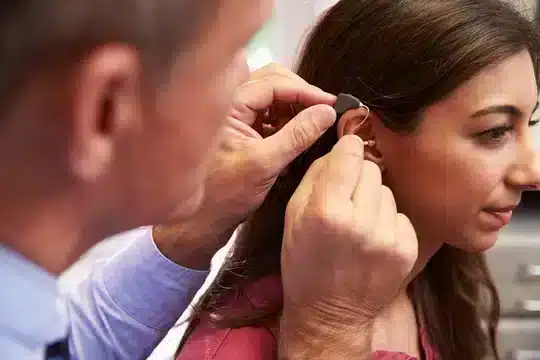If you’re experiencing hearing problems, finding the right audiology clinic can be a daunting task. There are so many factors to consider, including location, cost, and the qualifications of the audiologist. Moreover, it’s crucial to choose a clinic that offers comprehensive services, including diagnosis, treatment, and follow-up care.
With so much at stake, it’s important to do your research and choose the best clinic for your needs. In this guide, we’ll provide you with a comprehensive overview of where to find a good audiology clinic.
Do Your Research
The first step in finding a good audiology clinic is to do your research. Start by searching online for audiology clinics in your area. Look for clinics that have good reviews and high ratings from previous patients. Also, consider the qualifications of the audiologist, as well as the types of services they offer.
Check Credentials
When it comes to your hearing health, it’s essential to choose an audiologist with the right credentials. Look for clinics that employ audiologists who have a Doctor of Audiology (Au.D.) degree. This advanced degree ensures that the audiologist has the knowledge and skills necessary to diagnose and treat a wide range of hearing problems.
Look for Comprehensive Services
A good audiology clinic should offer comprehensive services, including diagnosis, treatment, and follow-up care. Look for clinics that offer a full range of services, including hearing evaluations, hearing aid fittings, tinnitus management, and cochlear implant evaluations.
Check Insurance Coverage
Before you choose an audiology clinic, it’s essential to check your insurance coverage. Look for clinics that accept your insurance, or that offer financing options if you don’t have insurance coverage.
Consider Location
When choosing an audiology clinic, it’s important to consider the location. Look for a clinic that is convenient for you to get to, whether it’s close to your home or workplace. Additionally, consider the clinic’s hours of operation, as well as whether they offer weekend or evening appointments.
Ask for Referrals
One of the best ways to find a good audiology clinic is to ask for referrals. Ask your primary care physician, friends, or family members for recommendations. They may be able to refer you to a reputable clinic that offers excellent care.
Schedule a Consultation
Once you’ve identified a few potential audiology clinics, it’s essential to schedule a consultation with the audiologist. During the consultation, the audiologist will evaluate your hearing and discuss your options for treatment. This is an excellent opportunity to ask questions and ensure that the audiologist is a good fit for your needs.
Read Reviews
Before choosing an audiology clinic, it’s crucial to read reviews from previous patients. Look for reviews that mention the audiologist’s bedside manner, the quality of care, and the overall patient experience. This will give you a good idea of what to expect if you choose that clinic.
Consider Cost
While cost shouldn’t be the only factor you consider, it’s essential to choose a clinic that offers affordable services. Look for clinics that offer competitive pricing, or that accept insurance coverage. Additionally, consider financing options if you don’t have insurance coverage.
Follow Up Care
After you’ve received treatment at an audiology clinic, it’s essential to receive follow-up care. Look for clinics that offer ongoing care, including hearing aid adjustments and cleanings. This will ensure that your hearing stays in good condition and that any ongoing issues can be addressed promptly.
FAQs
What does an audiologist do?
An audiologist is a healthcare professional who specializes in the diagnosis and treatment of hearing and balance disorders. They work with patients of all ages, from newborns to the elderly, to evaluate and manage a wide range of hearing problems.
How do I know if I need to see an audiologist?
If you’re experiencing any hearing problems, such as difficulty hearing conversations or sounds, ringing in your ears, or dizziness, it’s important to see an audiologist. They can evaluate your hearing and recommend appropriate treatment options.
What types of services do audiology clinics offer?
Audiology clinics offer a wide range of services, including hearing evaluations, hearing aid fittings, tinnitus management, balance evaluations, and cochlear implant evaluations.
Will my insurance cover audiology services?
The coverage for audiology services varies depending on your insurance provider and plan. It’s essential to check your insurance coverage before choosing an audiology clinic.
How do I find a reputable audiology clinic?
To find a reputable audiology clinic, start by researching online for clinics in your area. Look for clinics with good reviews and high ratings from previous patients. Additionally, ask for referrals from your primary care physician or family and friends.
Finding the Right Audiologist for You
Choosing the right audiology clinic is an important decision that can have a significant impact on your hearing health. By doing your research, checking credentials, considering comprehensive services, location, insurance coverage, and cost, and following up with appropriate care, you can find a reputable audiology clinic that meets your needs.
Remember to schedule a consultation with an audiologist, read reviews, and ask for referrals to ensure that you choose the best clinic for your hearing health.


